Tag: Creating wildlife champions
The black crowned crane, found in various regions of East and West Africa is of global conservation concern. Both subspecies, the West African Crowned Crane and the Sudan Crowned Crane, have undergone dramatic population declines.
Thought originally to occur in over 27 African countries, the species has now been restricted to roughly eight isolated populations. The West African crowned crane in particular has undergone such drastic population declines that in Nigeria, where the species is still considered the national bird, no more than a few individuals are left of the population that in the 1970s was in excess of 15,000 birds.
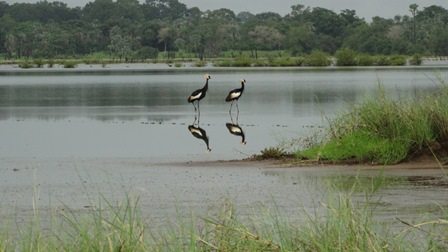
Chester Zoo has a long history of support for the Conservation of Black Crowned Cranes in West Africa project. The project’s main aims are to better understand the species’ habitat usage, distribution, nesting behaviours and instigation of a better future management plan. Along with these investigations, the project also engages local communities and helps to raise awareness of the importance of these beautiful animals.
In 2001, the zoo supported preliminary surveys of the bird in the Casamance (the area of Senegal south of the Gambia including the Casamance River), conducted by Wetlands International.
These surveys estimated 940 birds in the five regions of the Casamance. The 2013 updates indicated that the most serious on-going threat to cranes in this region appears to be continuous changing habitat. In essence, the freshwater wetlands that are such important breeding sites for these birds are increasing in salinity and becoming unsuitable breeding sites. This was not necessarily the case for all other sites surveyed as the project is run in several West African countries simultaneously.
In the Casamance, the bird is greatly respected and highly regarded amongst local people, however, in other regions such as small villages in Guinea-Bissau traditions exist that may be detrimental to the survival of the species; for example if a hunter sees more than one crane, he must kill all or none, or else the other cranes will bring revenge to the village. For this reason, community engagement, education and awareness is just as important as habitat preservation for the survival of these birds.
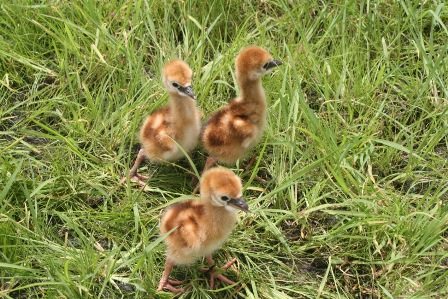
Most recently, there have been reports surfacing from recent monitoring of the species, of population stabilisation and increases in certain areas of West Africa. Chester Zoo continues to provide financial input and support to this important project and we look forward to more good news emerging as the project continues.
The conservation of black crowned cranes in West Africa is an ongoing project, with community education and involvement in the conservation of these animals a major component in the success of the project, something that Chester Zoo also provides support for, along with other partners involved in the project. Stay tuned for further information about this project in blogs to come!
The Tangkoko Conservation Education project – a project we support at Chester Zoo – uses education as a behaviour changing tool so that local communities change the way they live to be more harmonious with their environment.
The project’s main focus is to change attitudes towards the local biodiversity, especially the critically endangered crested macaque. This species is mainly found in the Tangkoko-Duasudara Nature Reserve, commonly called ‘Tangkoko’, in North Sulawesi, Indonesia.
Mathilde Chanvin, funder and coordinator of the programme, has sent us an update from the project, keeping us up to speed with what has been happening in Sulawesi and some of the results she has been reporting through to us are extremely positive.
“In order to assess the efficiency of the programme in increasing knowledge and changing habits and behaviour of our participants, we distributed a pre-programme and post-programme evaluation questionnaires to 311 pupils, 16 school staff and 95 pupils’ parents who took part in the programme in 2013-2014.
“Establishing a positive impact on knowledge, attitude and habits of local communities is a long-term objective. Nevertheless, the results show that the pupils who have started to participate in our programme for the first, second or third time are changing in a positive way already.
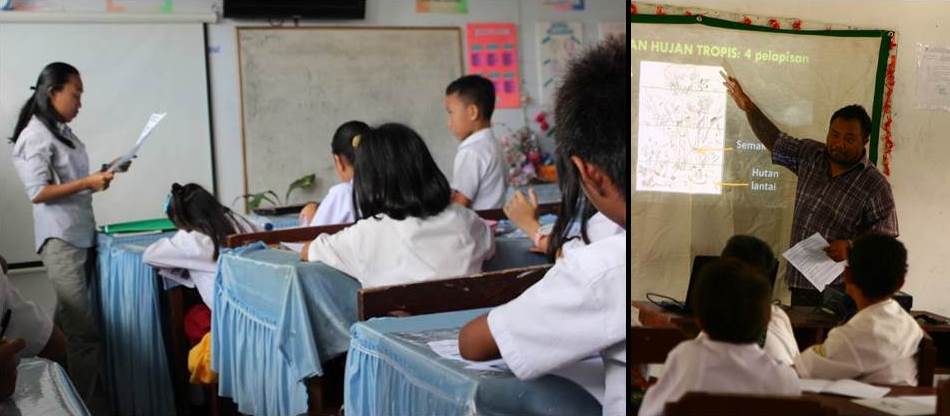
“The first analyses of our evaluation questionnaires given to the pupils show that those who took part in our project have significantly improved their knowledge about their local environment and have intended to change their attitudes and habits towards local wildlife in a more sustainable way.
“We have noticed that they also have a better understanding of the endangered and protected status of the crested macaque: their attitudes have improved regarding how they react when encountering them in the forest: For example, the children declare that they implement less disturbing activities towards macaques, such as touching or feeding them.
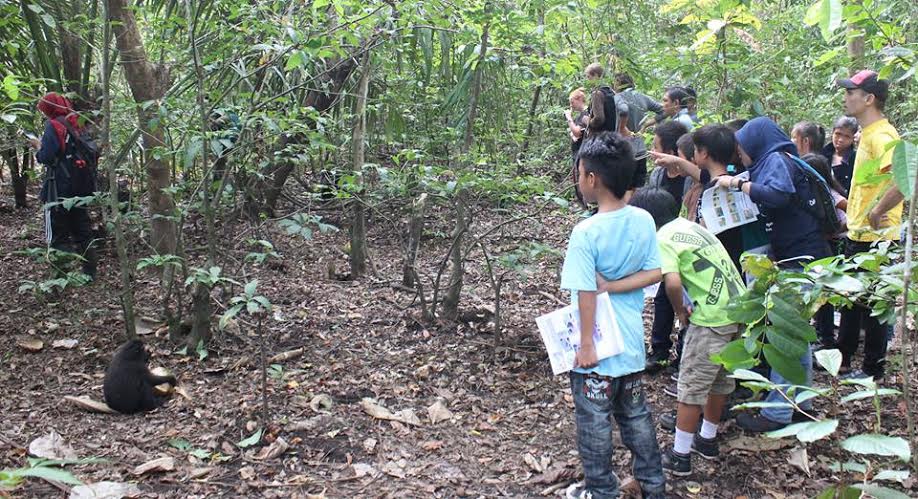 Students observing the macaques in the forest. Photo credit: Tangkoko Conservation Education
Students observing the macaques in the forest. Photo credit: Tangkoko Conservation Education
“These results confirm that our education programme can have a positive effect on the protection of crested macaque and Tangkoko forest.
“We have now finished our 5th school year programme! During this year we have involved 18 schools, including 3 new new ones! Going forward, we would like to build an education centre in Batu Putih, open after school and during holidays. As well as providing a practical work-space for our staff, this centre is envisaged as an activity centre for the youngsters of Batu Putih (e.g. games, activities, library etc.). It would also constitute a meeting point, where we can run seminars, and film projection on about conservation for the local community. Ultimately, we would like to open a centre for local and international volunteers to help develop our education activities.”
We can’t wait to see what the future holds for this fantastic project! We’ll be sure to keep you updated with any future developments.
For hundreds of years in East Africa hunting and killing animals – mainly lions – has been a traditional rite of passage to manhood. It is customary warrior activity and is carried out to show strength, impress women and identify future leaders.
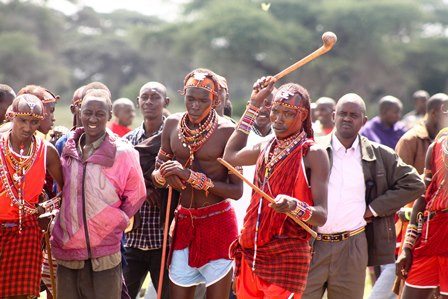
But this activity was forcing certain species towards the edge of extinction. Something needed to change. So conservation experts worked together with spiritual leaders, village elders and leading Maasai figures to develop these games and stop the killing of animals.
It provides Maasai warriors with other ways of displaying bravery. Now the competition is to see who can win more medals than the other, rather than who can kill the most lions.
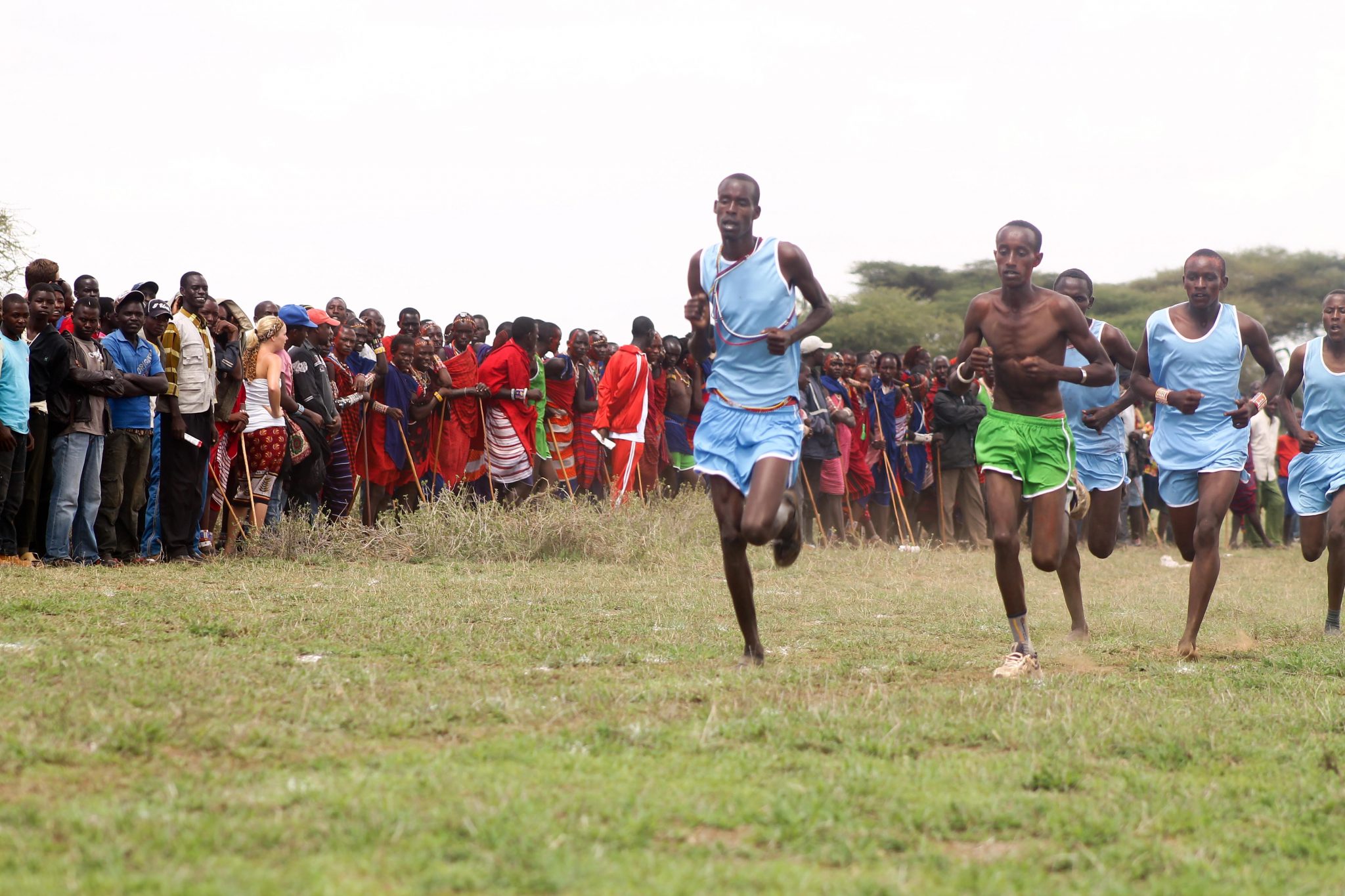
The first Maasai Olympics were held in 2012 and with it came a completely new approach to animal conservation. Taking place at the base of Mount Kilimanjaro in the Kimana Wildlife Sanctuary will be a number of athletic events, including the high jump, spear throw, 200m sprint, 800m sprint and a 5k run. All based on traditional warrior skills.
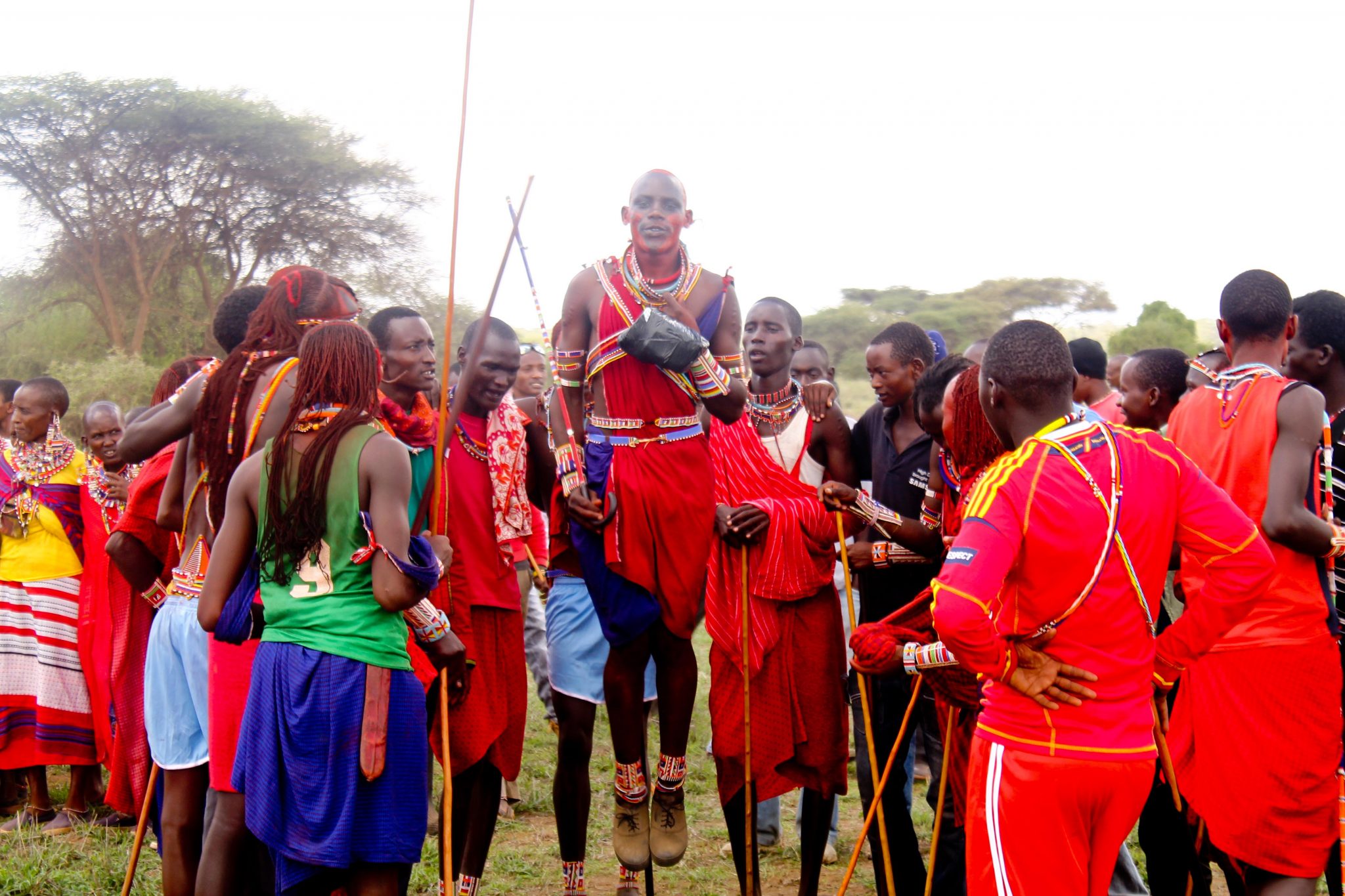
And, for the very first time, women will also compete in two events – the 100 and 1500 metres.
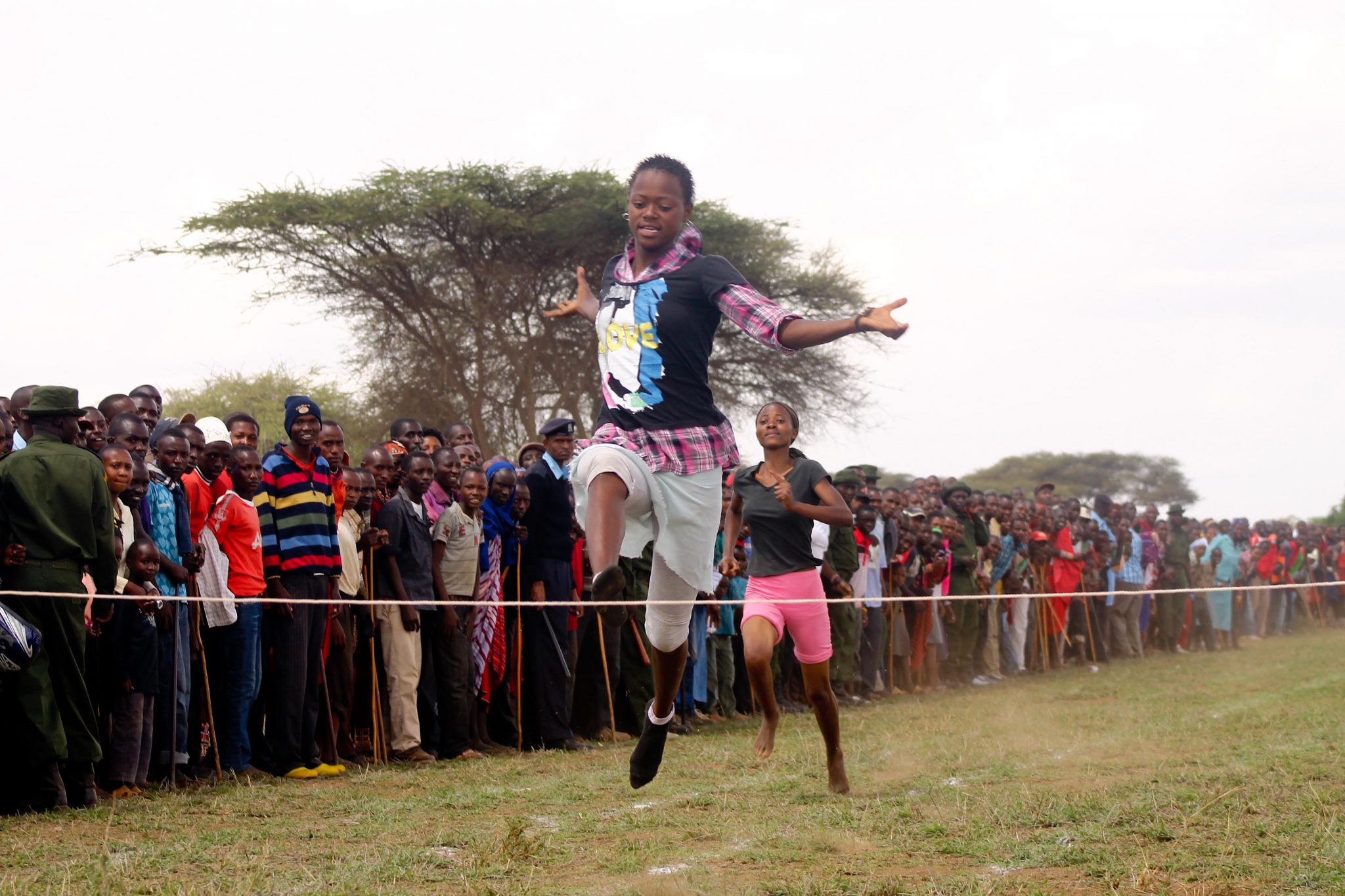
There’s a lot at stake too! The top 3 winners for each event will receive a medal and cash prizes, and the overall winning manyatta receives a trophy and a premier breeding bull.
Dr Maggie Esson – our education programmes manager – is currently in Kenya at the event to present the Chester Zoo Conservation Prize in recognition of the Maasai village (known as a manyatta) that has done the most for wildlife conservation.
On top of that world record holder and Olympic Champion in the 800-metres David Rudisha is the patron of the games again. David is a former Maasai warrior and Kenyan Olympic gold medallist and a great role model for the competition.
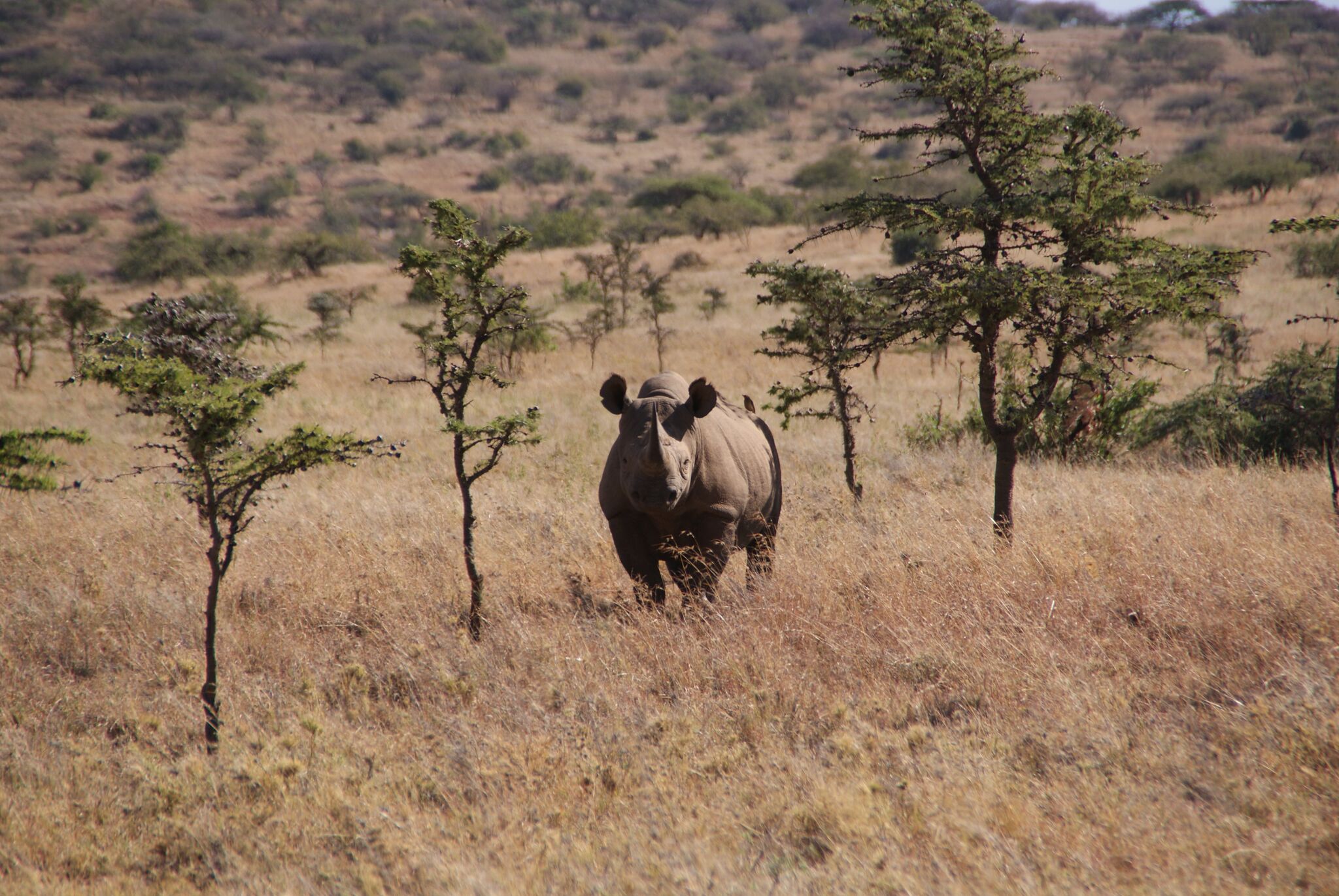
Donate to our conservation work in Africa
November is here, which means another successful Go Orange for Orangutans campaign is over (until next year).
We would just like to say a big thank you to everyone who took part. The support has been amazing!
Your donations have been making their way in and we are thrilled to tell you that we have managed to beat last year’s total and raise over £16,000.
That’s at least 1,600 trees that will be planted in Borneo by HUTAN, our partners. This won’t be an easy task for the team working out in the field and will involve a lot of work. But the difference it will make will be huge, as they will be able to create new orangutan habitat.
Learn more about orangutan habitat and why it’s so important to their survival here.
Overall we received Go Orange registrations from…
…48 schools and colleges,
 Dowson Primary School
Dowson Primary School
 Brimrod Community Primary School
Brimrod Community Primary School
“The children are so excited and keep chanting, ‘We can plant 11 trees!!’ We have thoroughly enjoyed taking part in this fund raising event and it has really enriched the children’s experience after their visit to the Zoo.”– Zaira, Brimrod Community Primary School
 Fernhill Primary School
Fernhill Primary School

Mid Cheshire College
16 businesses,
 Aaron & Partners LLP Go Orange bake off and virtual tree raised £474.05
Aaron & Partners LLP Go Orange bake off and virtual tree raised £474.05

The very orange looking team at Intermarketing

Carat in Leeds strike an orangutan pose!

Sykes Cottages’ pumpkin carving competition

Hillyer McKeown
 Coach House Chester
Coach House Chester
26 groups & organisations,
 Reaseheath Conservation Society
Reaseheath Conservation Society
87 individuals…

 Friends Amaal, Alexandra, Phillip and Hannah raised £228.28 from their Go Orange bake sale
Friends Amaal, Alexandra, Phillip and Hannah raised £228.28 from their Go Orange bake sale
“Amaal really enjoyed helping with the fundraising and would love to help in any further projects you are organising. We visited the Zoo for the first time and she did a couple of the encounters. It is a great zoo. Keep up the good work.” – Hayder (Amaal’s Dad)
And one band!

Junebug performing at Chester Zoo
Even though October is over the fight to protect orangutans and their habitat will continue!
One company who have just started their fundraising campaign is The Chalk Bag Company who create and sell novel alternatives to climbing equipment. Over the next 12 months the company will be selling their orangutan-shaped chalk bags with all proceeds coming directly to our Go Orange for Orangutans campaign. So big thanks to the team for their support!

The Chalk Bag team at Chester Zoo
Thank you to everyone who took part!
Our Zoo Rangers are normally out and about in the Chester Zoo giving talks at different animal enclosures, telling you all about our conservation work and answering all your questions.
In support of Go Orange the team have spent October with our orangutans in the Realm of the Red Ape providing more information to our visitors about our orangutans and the effects palm oil has on orangutans in the wild.
Here Sarah Bazley tells us a little more about what the team have been up to…
“We have had some amazing experiences! One moment that sticks out especially is when Emma, Subis and their babies came and sat right next to us at the windows! It is such a privilege to be so close, but also can be quite sad when you think they are critically endangered in the wild.
“Over the past month the question we’ve been asked the most is: ‘what can I do to help the orangutans?’ (apart for signing up for Go Orange…!)
 Chester Zoo Ranger in the Realm of the Red Ape
Chester Zoo Ranger in the Realm of the Red Ape
“You have probably heard of palm oil by now – it’s an oil that is used in most of the products we use every day (you can find out even more here). It’s in all different kinds of food from chocolate to pizza, and in cosmetics, cleaning products, shampoos and conditioners. The forest where the orangutans live are being cleared to grow this palm oil, which is bad news for orangutans, however it does mean that we as consumers can make a big difference.
 Zoo Rangers Go Orange
Zoo Rangers Go Orange
“So, if you want to help save the orangutan one of the easiest things you can do is to pay a little more attention when you are shopping, and look out for products with the RSPO logo.

“This logo means that any palm oil contained in the product has come from a sustainable source – you could say it is ‘orangutan friendly’.”
October may be practically over but the fight to protect orangutans in the wild will continue. So it’s not too late to show your support for Go Orange. Find out more here.
Four year old Bradley managed to take time out of his busy half term schedule to chat to us about his amazing fundraising activities for orangutans in the wild.

He managed to raise enough money to plant 6 native trees in Borneo!
How did you hear about Go Orange for Orangutans?
I read it in one of the Chester Zoo e-newsletters. I read one of the stories about orangutans and it upset me that they were losing their homes.
I like monkeys and orangutans are my favourite animal.
What did your family and friends say when they found out what you were doing?
They were happy to help me. I took the wristbands to football practice. My friends thought it was good. My mum helped me too by taking some to work.
What are you going to do next?
I want to fundraise again. I want to sell 5,000 million next time!
If you want to be a fundraising star like Bradley, and help us to raise money for our Go Orange for Orangutans campaignfind out more here.
On another, more musical, note Chester Zoo visitors were treated to a live performance on Monday (27 October), as Junebug played a number of animal themed songs – including their ‘double ape side’. The two songs are helping us raise money for our conservation campaign. If you missed them, not to worry, you can download the songs here and listen to them as many times as you like!

The band deserves another big thank you after taking the time to perform at the zoo and raise a further £50 towards the campaign.

There’s still time to Go Orange for Orangutans too! We’ve managed to raise £12,000 so far, thanks to our supporters, meaning we’re getting closer and closer to our target of £15,000.
As we draw closer to the end of October we wanted to take some time out from applying fake tan, baking cakes and dancing along to ‘She’s An Ape not a Monkey‘ to say a big thank you to the amazing people who have/are supporting our Go Orange for Orangutans campaign.
Here at Chester Zoo we’ve been going orange in a number of different ways to help raise vital funds to restore tropical forests in Borneo.
Going totally orange

TAN-tastic!
Ten members of staff volunteered to go TOTALLY orange! For every £100 raised another member of staff would commit to being spray tanned (using a company that uses only Certified Sustainable Palm Oil), including our Director General Mark Pilgrim.
We managed to smash our target of £1,000! Obviously people were quite eager to see their fellow colleagues turn a funny shade of orange!
The Great Chester Zoo Staff Bake Off
Chester Zoo staff channelled their inner Mary Berry and Paul Hollywood to take part in our great bake off. There were three rounds: cupcakes, cookies/ biscuits and cakes.
All treats submitted were marked on appearance as well as taste and were then available for staff to try and make a donation. As you can see some of the entries were very creative and, you can take our word for it, they tasted delicious!

Mint Chocolate Reforestation cupcakes – entry for the cupcake round

Go Orange Cookie Tree – winner of the cookies/ biscuit round

Lime and Pistachio Cake – winner of the cake round
Golf day
We held our first ever Go Orange for Orangutans golf day with our corporate supporters and suppliers competing to win some fantastic prizes. Overall we raised an amazing £10,000, which means we can plant 1000 trees in Borneo!

Orange-tastic!
Staff from across the zoo showed their support for orangutans by dressing in as much orange as possible for the day. Some staff took it to the next level and had their face painted and hair sprayed orange too. This was a fun and simple way of raising money and awareness of the campaign.





It doesn’t stop at the zoo either, you lot are wonderful and have been extremely busy…
Four year old Bradley was inspired to take part in Go Orange after visiting Chester Zoo and hearing how orangutan habitats are being destroyed at an alarming rate.

Bradley raised a magnificent £60 by selling our Act for Wildlife wristbandsto his family, friends, neighbours and anyone else he met! Read more about Bradley’s efforts here.

Supporting our orangutan conservation project has never sounded so good –listen to and download the new tracks ‘She’s An Ape, Not A Monkey’ and‘The Song of the Apes’ by band Junebug, who are using their musical talents to raise money for our ape cousins. Look out for Junebug’s acoustic performance at Chester Zoo.
We would also like to say a massive thank you to:
Kings Meadow Primary School
The Church Hotel Pub
3rd Cheadle Heath Brownies
Reaseheath Conservation Society
Mid Cheshire College
University Academy Warrington
Coach House Chester
Sykes Cottages Ltd
Leah Woosey
And everyone who has helped us show why supporting orangutan conservation is so important by fundraising, wearing Go Orange wristbandsand taking your #orangutanselfieAFW
Together we CAN help save orangutans in the wild.Read more about where your donations will go here.
There’s still time to Go Orange for Orangutans too, so sign up today. Or if you’d like to make a donation towards protecting orangutans you can do so here.